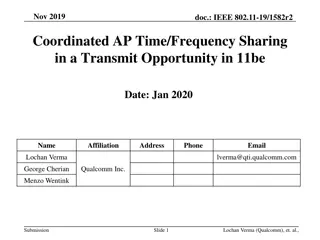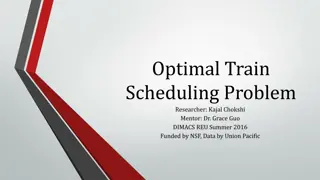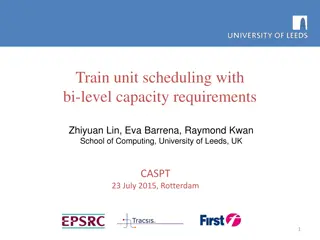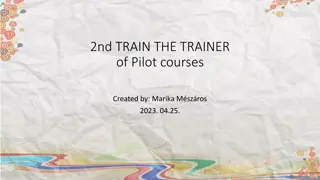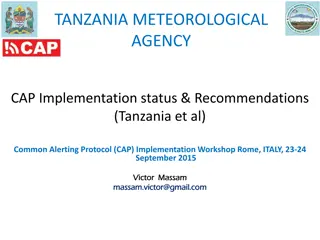
Effective Project Development in Parliamentary Settings
Learn about why projects are developed in parliamentary contexts, how capacity needs are assessed, and the key stages in project design and implementation. Explore the significance of setting the tone and understanding existing capacity gaps to achieve successful project outcomes.
Download Presentation

Please find below an Image/Link to download the presentation.
The content on the website is provided AS IS for your information and personal use only. It may not be sold, licensed, or shared on other websites without obtaining consent from the author. If you encounter any issues during the download, it is possible that the publisher has removed the file from their server.
You are allowed to download the files provided on this website for personal or commercial use, subject to the condition that they are used lawfully. All files are the property of their respective owners.
The content on the website is provided AS IS for your information and personal use only. It may not be sold, licensed, or shared on other websites without obtaining consent from the author.
E N D
Presentation Transcript
5 NATIONAL INSTITUTE FOR LEGISLATIVE STUDIES Capacity Building Project (NILS-CAP) NATIONAL ASSEMBLY Parliamentary Capacity Development Train-The-Trainers Workshop: Presentation by Dickson Antwi, SPO, ACBF
SETTING THE TONE: Why do we develop a project?
Why do we develop a project (Parliamentary)? Projects are developed to respond to: Existing capacity gap or challenge skills, knowledge, systems, tools, processes/institutional arrangement; An opportunity a return to democratic rule and need to deepen participatory rule; As a follow up to ongoing intervention or intervention sustain gains made. Whatever the rationale for a project, it should engender effective and efficient delivery / achievement of results.
How do we determine the level or scope of existing capacity needs?
Capacity Needs Assessment; CNA provides link between mandate/objectives of an institution, required capacity to deliver, existing capacity. Example: - Parliament exists to make laws, oversee executive, represent the voices of citizens, budget and financial roles, contribute to policy formulation and management etc. etc. what capacities are needed both at MPs and staff level to be able to effectively deliver? - What gaps exist between desired and existing capacity?/link to strategic plan
Where do we start from? Project Design Logic Results Chain Impact/Long term effect Goal Outcomes/Intermediate effect Objective/Purpose Outputs/Immediate Effect Output Activities/processes Activities Inputs
Key Project Design, Approval, Implementation Stages Different Development Partners may have different approaches; ACBF has a 10-step cycle; Sometimes depending on whether a project is 1st or 2nd phase, a slight modification may be made to the cycle.
PERFORMANCE, RESULTS AND SUCCESS NOTE: Project results must be linked to the objectives that were set at the beginning of project design. Critical success factors may be grouped into two: a. Project Governance b. Project Management and Implementation
What are some of the critical factors that would determine project success?
Critical Success Factors Project Management and Implementation Timeliness; Budget compliance flow and use; Relevance link to objectives;/strategic plan, directions; Reporting grant covenants and other policies; Communication.
CRITICAL SUCCESS FACTORS PROJECT GOVERNANCE Ownership of the project by Promoters / Beneficiaries; Setting project agenda Contribution to project resources Effective Governance Structures Steering Committee Technical Committee Effective Leadership / Management Openness; Resilience; Competence/financial/3Es Economy, Efficiency, Effectiveness
A NOTE ON PARLIAMENTARY CAPACITY DEVELOPMENT Work-in-progress/differentiated from physical High turn-over of MPs and the need for recurrent capacity support; Kenya 85%, Senegal 95%, Tanzania 70%, Ghana 50%, Nigeria? Evolving global and regional issues confronting African countries and the need for analytical thinking Do the Technical staff have the capacity to move with changing times? Increasing sophistication of MPs as a result of attractiveness of Parliaments in democratic dispensations How do Parliamentary staff / Technical experts relate to well educated MPs? Need for careful balance The case of the assertive parliament and the need for higher level support avoiding the empty barrel syndrome.
CONCLUSION / SUMMARY Whether a Parliamentary project succeeds or fails is contingent on setting up a clear goal and objective; Objective must be SMART; There is need for a well-thought out project design framework; Reporting and communication are key; Governance and management effectiveness are the lifeline.
THANK YOU FOR LISTENING AND PARTICIPATING !! COMMENTS/QUESTIONS







